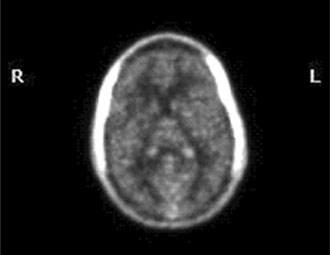
A team of Weill Cornell researchers studying new ways to diagnose concussion and other mild traumatic brain injuries (mTBIs) has been awarded a $300,000 grant from GE and the NFL. The grant is one of 16 awarded as the first part of the “Head Health Challenge,” a four-year, $20 million initiative to improve our understanding of brain injuries and develop better head protection. The multidisciplinary Weill Cornell team includes researchers from nuclear medicine, neurological surgery, neurology, and radiology. The Principle Investigator for the study is Dr. David Mozely, director of nuclear medicine at Weill Cornell.
This Weill Cornell team is using nuclear medicine and MRI technology to develop a new diagnostic tool for concussion and other mild TBIs. A definitive way to diagnose a concussion and its severity has proved to be elusive, and doctors have long sought a simple “yes or no” test that would allow them to establish quickly whether or not a concussion has occurred.
“The problem is that a mild traumatic brain injury like concussion is a functional injury to the brain, often with no specific pathology,” says Dr. Philip Stieg, neurosurgeon-in-chief of NewYork-Presbyterian/Weill Cornell Medical Center and Director of the Weill Cornell Brain and Spine Center. “It’s a very real injury, but it does not show up on CT or MRI scans, so we have to diagnose by symptoms. A simple test that shows that a concussion or other mild TBI has occurred would be a real game-changer.”
Dr. Roger Härtl, chief of neurotrauma at the Weill Cornell Brain and Spine Center and a team physician for the New York Giants, concurs. “Imagine a doctor being able to use a portable EEG – or even perform a simple blood test – on an injured player and determine right away that he or she has suffered a concussion. That would allow us to get brain-injured players off the field immediately, rather than their going back to the game and risking second-impact syndrome or other complications.”
Dr. Kenneth Perrine, a neuropsychologist at the Weill Cornell Brain and Spine Center who specializes in concussion and TBIs and who works with the New York Jets and the New York Islanders, explains that the current research will investigate changes that occur in the brain after an injury. “When the brain is injured, it releases a chemical called arachidonic acid (AA),” says Dr. Perrine. “If we can find out if the brain is making excess AA, we would know whether someone has suffered a TBI. Using nuclear medicine allows us see that – injured areas of a brain positively light up on PET scans when AA has been tagged with a radioactive tracer.”
The research team is comparing such scans from three populations: The first are former professional boxers known to be experiencing the long-term effects of head injuries; the second are current NFL players who suffer a head injury and are suspected of having a concussion; the third are bodybuilders, who have athletic builds but no history of TBIs.
The Weill Cornell research group was selected from among more than 400 applicants for the 16 grants. During the grant period, the team will have access to GE researchers to assist in the investigation.Teams whose results show feasibility will be funded at $500,000 per year for 3 more years starting in 2015.
For more information: Weill Cornell Scores a Touchdown With NFL Grant